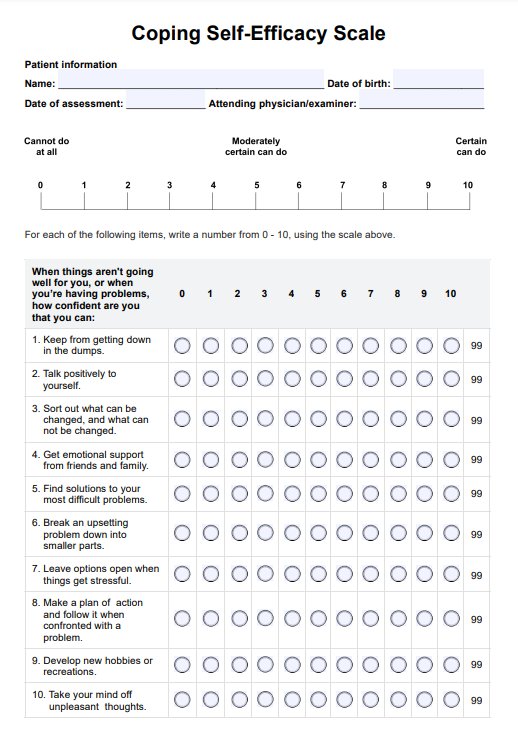The Coping Self-Efficacy Scale (CSES) is a 26-item assessment tool designed to measure an individual's confidence in their ability to perform effective coping behaviors when facing life challenges. It evaluates three key areas: Problem-focused Coping, Emotion-focused Coping, and Social Support Coping.

Coping Self-Efficacy Scale
Download Carepatron's free PDF template and example of the Coping Self-Efficacy Scale to assess your coping abilities in various situations.
Coping Self-Efficacy Scale Template
Commonly asked questions
The Coping Self-Efficacy Scale (CSES) is scored by summing the ratings from each item, resulting in a total score ranging from 0 to 100, where higher scores indicate greater confidence in coping abilities. Scores are interpreted to assess the individual's perceived self-efficacy in managing emotional responses, mental health problems, and coping responses during stressful situations.
Coping strategies self-efficacy refers to an individual’s belief in their ability to effectively use coping strategies to manage stress and adversity. This concept is central to the Coping Self-Efficacy Scale, which assesses how confident a person feels in their ability to employ problem-focused, emotion-focused, and emotional support coping strategies.
EHR and practice management software
Get started for free
*No credit card required
Free
$0/usd
Unlimited clients
Telehealth
1GB of storage
Client portal text
Automated billing and online payments











